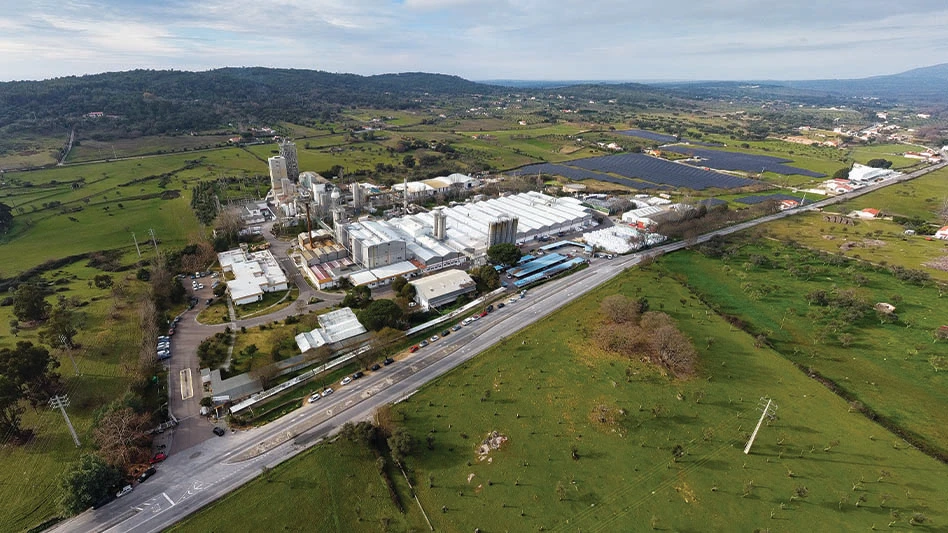
Image courtesy of Carbios
France-based Carbios, which uses biological technologies to recycle plastics and textiles, has signed a letter of intent with Portugal-based specialty polyester product developer Selenis to cooperate in the production of polyethylene terephthalate glycol (PETG).
Utilizing Carbios’ enzymatic depolymerization technology and Selenis’ expertise in polymerization, the companies say they plan to develop a premium, sustainable PETG material made from PET scrap for the cosmetic and health care packaging sectors across the U.S. and Europe. The partnership follows a two-year collaboration between the companies.
RELATED: Carbios, FCC Environment look to establish UK-based PET biorecycling plant
“Carbios and Selenis have a long collaboration, and we are pleased to build on this established relationship to produce PETG issued from Carbios’ unique biorecycling technology,” Carbios CEO Emmanuel Ladent says. “This high-specialty, premium material meets demanding quality requirements whilst also contributing to the transition to more sustainable packaging materials. The partnership will open new markets for Carbios, notably the health care sector, as we continue our worldwide commercial deployment.”
Carbios says PETG is an “indispensable” packaging material in both the cosmetics and health care industries due to its clarity, durability, and its mechanical and chemical resistance. Carbios’ depolymerization solution breaks down all types of PET scrap into purified terephthalic acid (PTA) and monoethylene glycol (MEG) monomers, which are then transformed into PETG through Selenis’ polymerization processes. Because of the purity of these monomers, Carbios says PETG issued from biorecycling presents the exact same properties as virgin PETG, allowing for products packaged in thick, molded pots and lids to be protected and presented “attractively.”
Additionally, in the medical and pharmaceutical industries, PETG properties also are critical for guaranteeing packaging performance, sterility, transparency and optical brightness, making it an ideal choice for complex medical device packaging, pharmaceuticals blisters or any other packaging of diagnostic equipment, Carbios says. “The material’s value is therefore further underscored by combining a sustainable recycling solution whilst guaranteeing all needed properties, aligning with consumer sustainability demands and stringent regulatory requirements,” the company adds.
Carbios and Selenis say their partnership is the result of extensive pilot and industrial polymerization trials that have refined the quality of the end product. The result is high-specialty PETG grades issued from biorecycling that meet the strict requirements of sectors like cosmetics and health care, where Selenis says it has a strong presence through its Selcare brand.
“This collaboration marks an exciting step in our mission to drive sustainability in the polymerization industry,” says Eduardo Santos, head of corporate strategy at Selenis. “By combining our 65 years of expertise with Carbios’ pioneering biorecycling technology that ensures high-quality monomers for the production of virgin-like PETG, we are advancing in the development of sustainable materials to meet the growing demand for environmentally responsible solutions in the cosmetic and health care sectors. Together, we have the potential to reshape the future of sustainable solutions.”
Latest from Recycling Today
- BMW Group, Encory launch 'direct recycling’ of batteries
- Loom Carbon, RTI International partner to scale textile recycling technology
- Goodwill Industries of West Michigan, American Glass Mosaics partner to divert glass from landfill
- CARI forms federal advocacy partnership
- Monthly packaging papers shipments down in November
- STEEL Act aims to enhance trade enforcement to prevent dumping of steel in the US
- San Francisco schools introduce compostable lunch trays
- Aduro graduates from Shell GameChanger program





